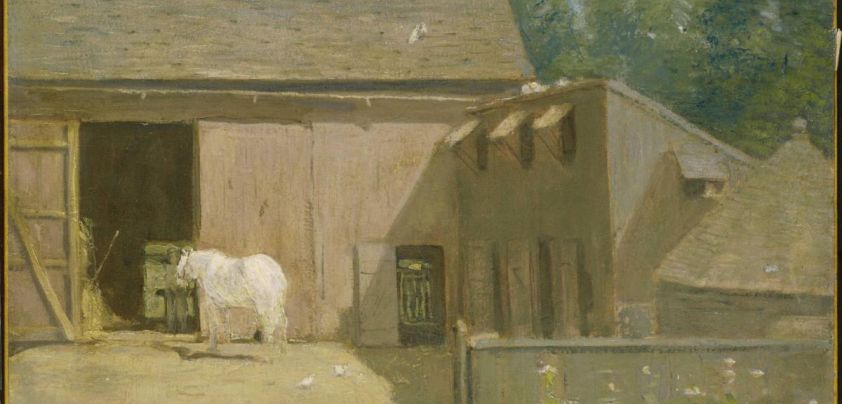 This Mary E. Wilkins Freeman story is an early example of American literary feminism. When Adoniram, an insensitive, authoritarian farmer decides to build a barn on the site of a promised new house and refuses to discuss the issue, his long-suffering wife takes a stand. Sarah, the hard-working and devoted “Mother”, sees his need to spend a few days away as a sign from God. Much to the surprise and amusement of the local community, she goes about turning the new barn into a home. Themes: gender roles/repression (male domination), insincerity (false promises), spirituality, rebellion.
This Mary E. Wilkins Freeman story is an early example of American literary feminism. When Adoniram, an insensitive, authoritarian farmer decides to build a barn on the site of a promised new house and refuses to discuss the issue, his long-suffering wife takes a stand. Sarah, the hard-working and devoted “Mother”, sees his need to spend a few days away as a sign from God. Much to the surprise and amusement of the local community, she goes about turning the new barn into a home. Themes: gender roles/repression (male domination), insincerity (false promises), spirituality, rebellion.
The Revolt of “Mother” Text / PDF (6,300 words)
The irony of the story lies in the fact that Sarah’s actions belie the marriage advice she gives to her daughter: You ain’t found out yet we’re women-folks, Nanny Penn. You ain’t seen enough of men-folks yet to. One of these days you’ll find it out, an’ then you’ll know that we know only what men-folks think we do, so far as any use of it goes, an’ how we’d ought to reckon men-folks in with Providence, an’ not complain of what they do any more than we do of the weather.
Several questions are left open for reader interpretation: 1) Was the trigger for Sarah’s “revolt” the absolute necessity of having a bigger residence, or Adoniram’s forty years of broken promises? 2) Did Sarah realize that her actions in taking over the barn had the potential to humiliate Adoniram in the eyes of the whole community? 3) Were Adoniram’s tears at the end of the story the result of sorrow for not realizing how important the long-promised new house was to Sarah, or his own injured pride.
Video Version
This 1988 film adaption of the story first featured on the American Public Broadcasting Service’s American Playhouse TV series. It follows the original quite closely with the exception that, unless the couple were married in their early teens, it’s hard to imagine them being married for forty years. Watch and enjoy!